“It is very interesting to communicate with them – primarily because of their strength of spirit. Among them, there are wounded and even amputees – and they continue to perform their assigned duties!” Oleksandr Kviatkovskyi, a press officer of one of the units of the Special Operations Forces of the Armed Forces of Ukraine, says with admiration about his colleagues.
Oleksandr joined the Armed Forces in 2016 – from the State Emergency Service. At first, he served as a chemist. And when, in 2018, the 3rd Prince Sviatoslav The Brave Separate Special Regiment began to form a press service, Oleksandr was offered to try himself there. He served first as a soldier, then as a sergeant, and since 2022 as a press officer.
Since the beginning of the full-scale war, the Special Operations Forces took part in battles in the hottest areas – Irpin, Bucha, Hostomel…
“In Hostomel, there was the first case in my memory when snipers had to shoot without a special sight: there was such a concentration of russian troops that they fired back, what is called, point blank,” Oleksandr says. “Subsequently, our boys performed tasks in Bakhmut, in Avdiyivka. These were tasks with unmanned aerial vehicle reconnaissance tasks. Our guys are versatile; they can do everything. We just don’t talk about everything.”
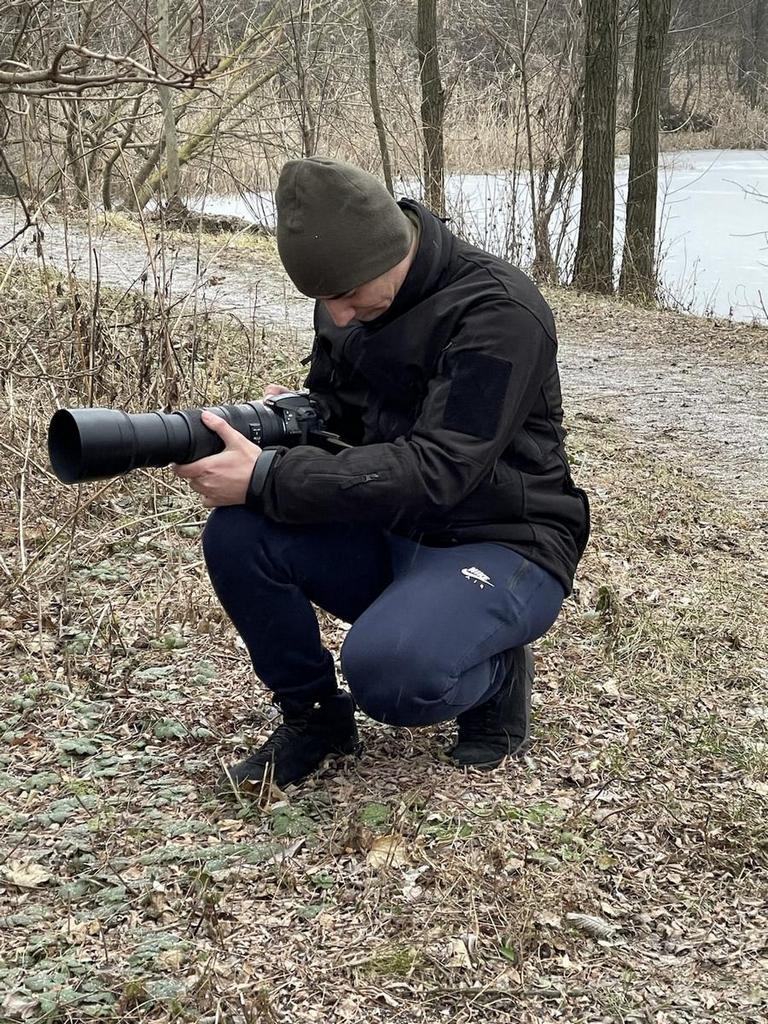
Oleksandr talks enthusiastically about the motivation of Special Operations Forces fighters.
“When you talk to them, record an interview with them, you are surprised how motivated they all are. And that’s why they have such a strong relationship with each other,” says the press officer. “They are almost a family, regardless of positions and titles. Yes, there is a commander who sets a task and sends subordinates to fulfill it. But how to accomplish this task is discussed together. And – no fear of superiors! This is understandable – after what they experienced together.”
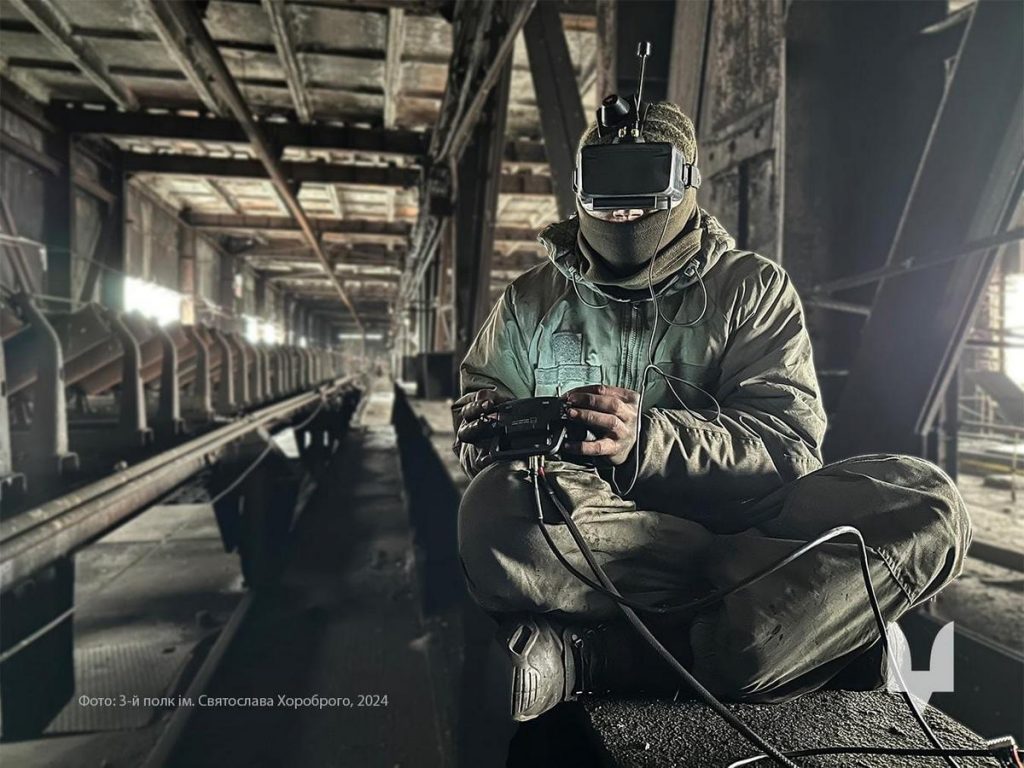
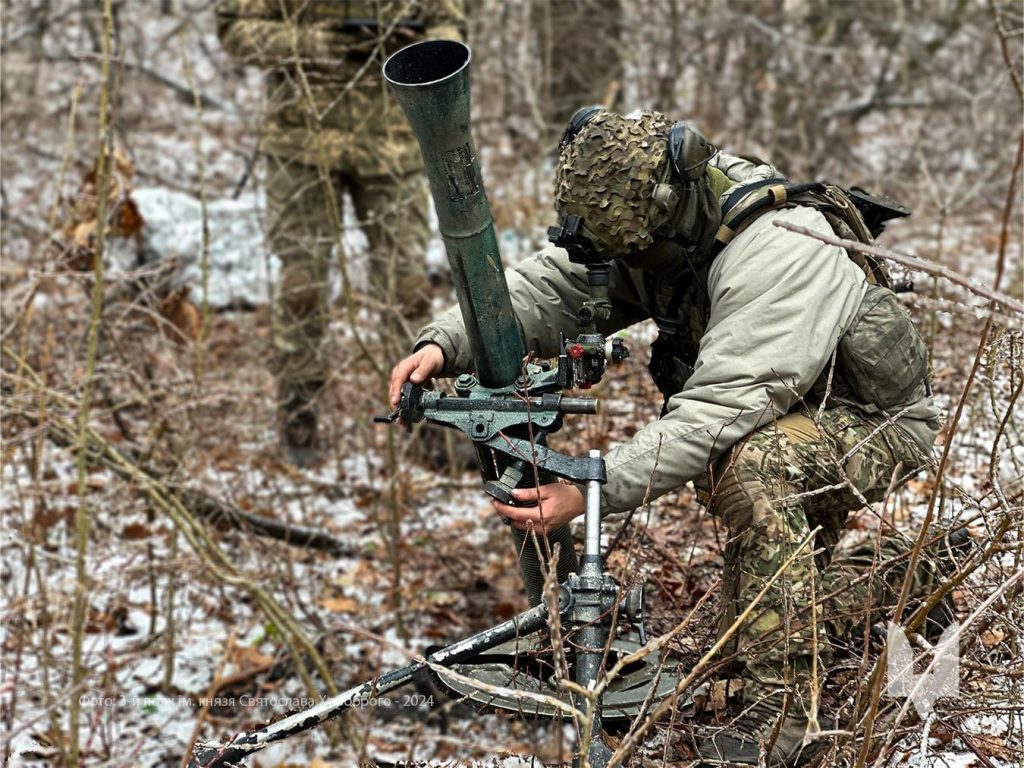
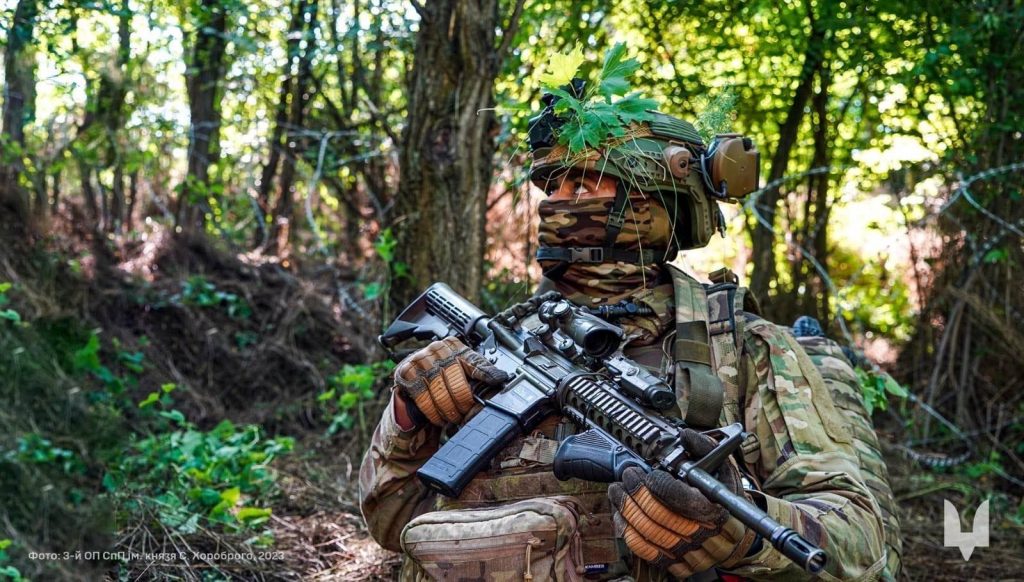
When a person is taken into the Special Operations Forces, they check their health and physical fitness and conduct a psychological test. Only then will they decide whether the candidate will be able to serve in the Special Operations Forces of Ukraine. If a person is morally motivated, but, let’s say, “physio is not up to par,” then they take them – and then, already in groups, they help to tighten what was missing. In a morally stable team, there is no question of someone mocking a comrade because something is not working out. No! Such fellows are taught calmly. Or, when there is such an opportunity, transferred to the unit within the unit where he will be in his place.
One of the most vivid impressions for Oleksandr was meeting a fighter with the call sign ‘Bear.’
“He lost his leg during the defense of Sievierodonetsk,” says the press officer. “Understanding the devotion of each soldier to the military brotherhood, the commander promised to keep him in the service but in a rear position. “No! – answered, “Bear.” – Mark the time – in two months, I will come!” And two months later, he arrived with a prosthesis. And immediately joined the guys in Bakhmut…”
It is clear that without a limb, it is difficult to move even in one’s own apartment, not to mention the front. ‘Bear’ said that he has “certain problems with the prosthesis” but performs combat tasks on an equal footing with everyone else… And no one tells him, “You don’t have a leg; you won’t go with us.”
“‘Bear’ is a very cool man. And he is in his place…,” says Oleksandr.
There are generally stunning cases. At one time, the story of Vadym Dovhoruk, who lost both legs and an arm under Debaltseve, became widely known in Ukraine. But he continues his service – he does what he can. In his spare time, he does volunteer work.
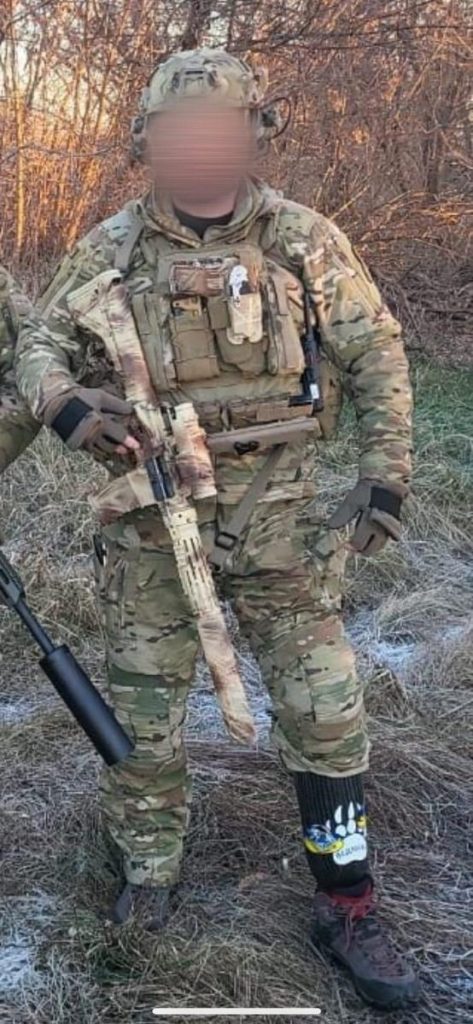
“And I have the impression that if he has to join the ranks, he will do it without thinking,” adds Oleksandr Kviatkovskyi.
Special Forces operations are not as well-known as, for example, the ones of infantry brigades or airborne assault troops. Therefore, journalists do not often turn to the press services of the Special Operations Forces with a request to organize filming. More often, it is just the opposite – when the press office needs to cover an event, it turns to the media. According to Oleksandr, all his long experience working with journalists shows that civilian colleagues are extremely responsible when working in dangerous conditions.
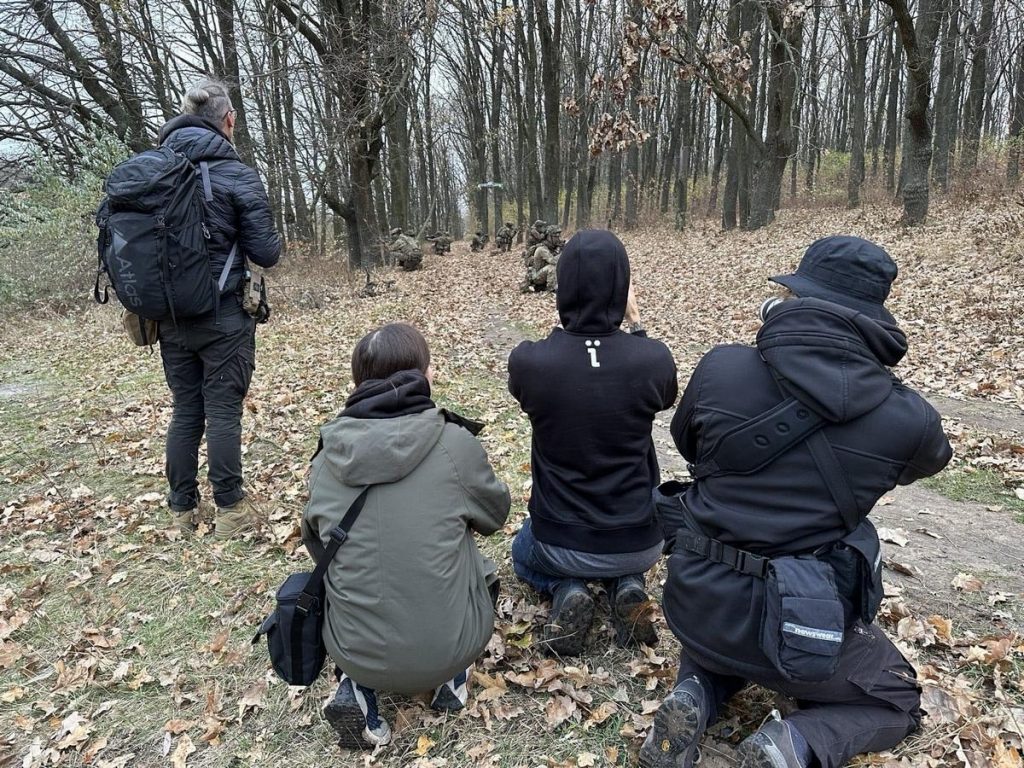
“We immediately warn them what it is possible to film and what it is not because, taking into account our specifics, we have not to show the faces and even change the voices of the fighters,” says Oleksandr. “In my practice, there were no cases when journalists did not comply with labor protection requirements – they always arrive with their protective equipment. We find positions for them where they can film – so that it is safe for both them and our guys and so that in the future, the captured footage cannot be used against us.”
Many journalistic reports of the press service are prepared by themselves. Thus, the press service of the 3rd Prince Sviatoslav The Brave Separate Special Regiment prepared materials from the places of events about Bakhmut, Avdiyivka…
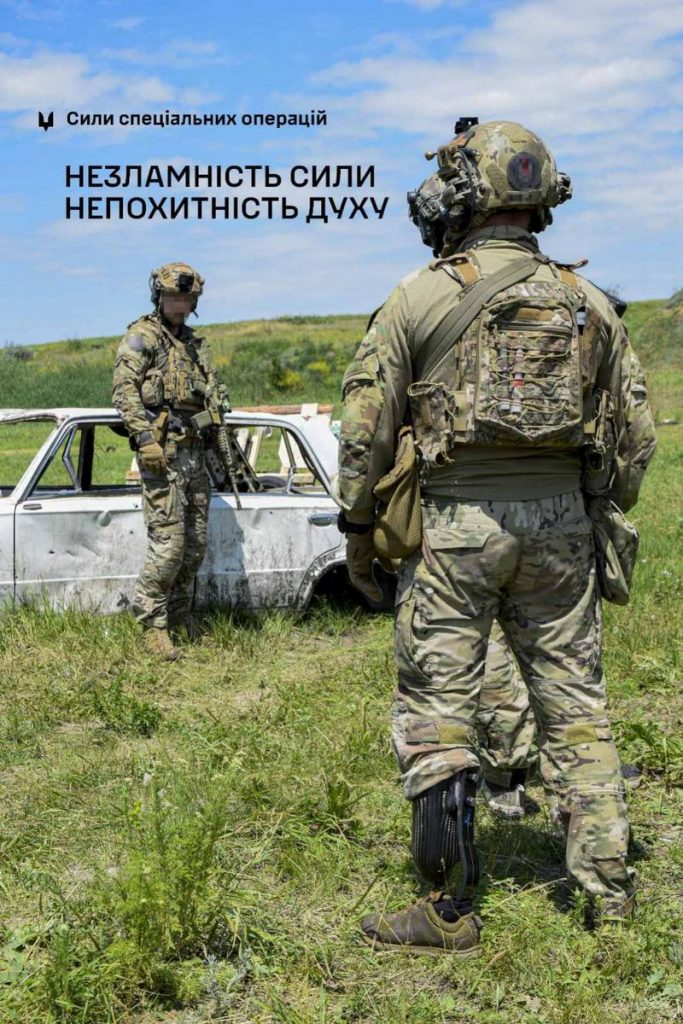
Despite the fact that the state provides the necessary material support, volunteer help is never superfluous.
“Our unit needs journalistic equipment and rather powerful equipment because we have to work with video,” says the press officer. “It is necessary not only to prepare journalistic materials but also to acquaint civilians with the life of our servicemen so that they understand the advantages of serving with us and joining our unit. Therefore, we will be grateful for any volunteer help. To Victory together!”
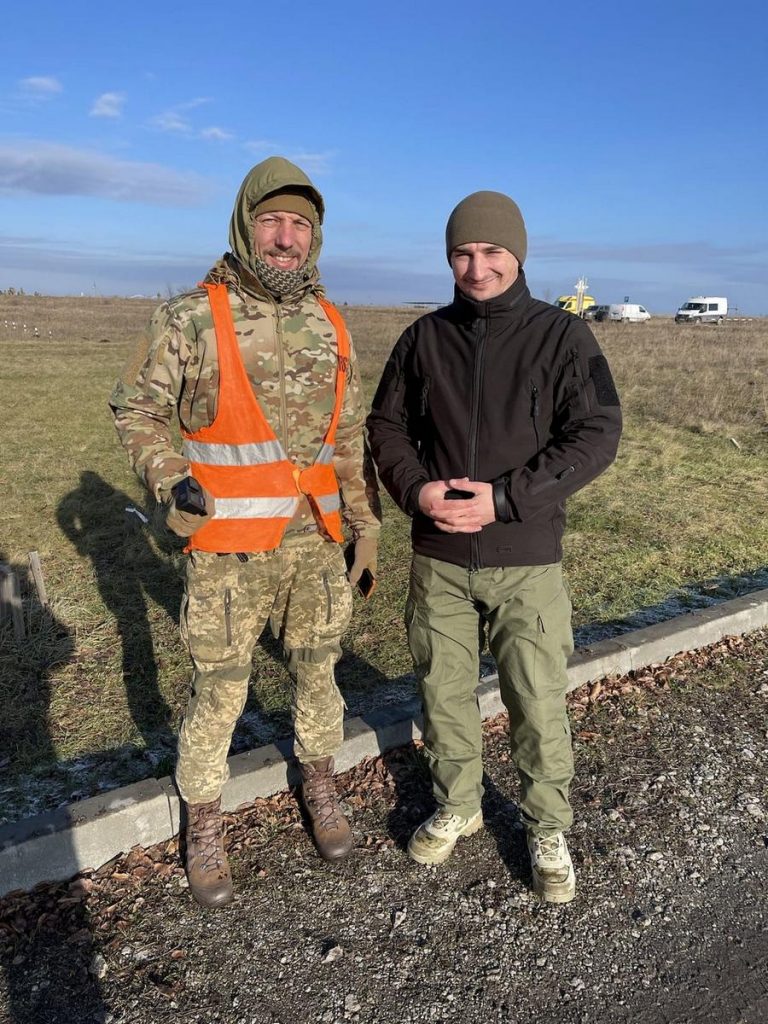
Maksym Stepanov, NUJU Information Service

 THE NATIONAL UNION OF
JOURNALISTS OF UKRAINE
THE NATIONAL UNION OF
JOURNALISTS OF UKRAINE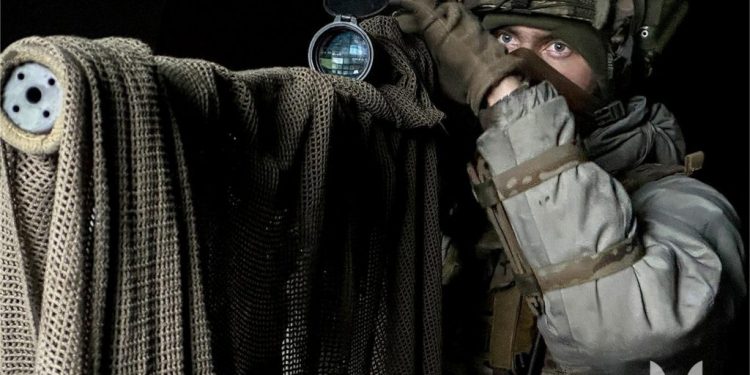
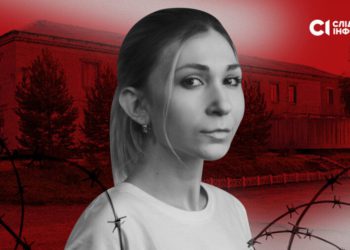















Discussion about this post